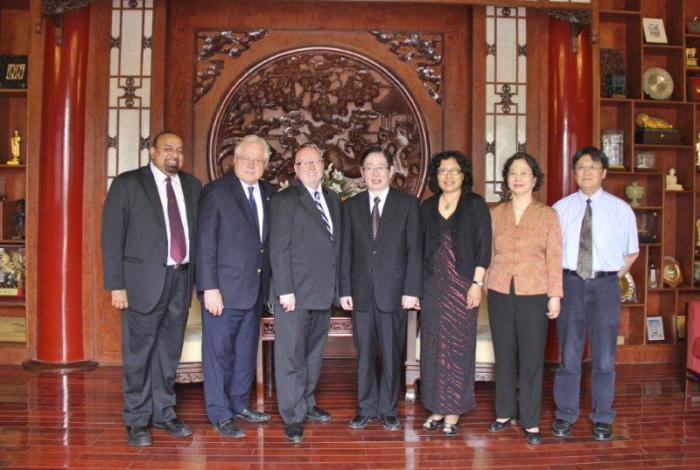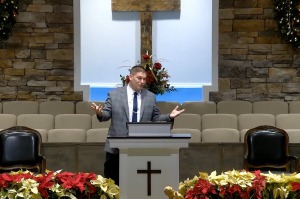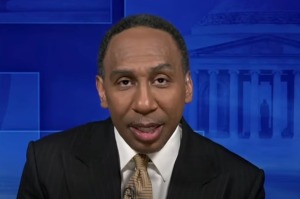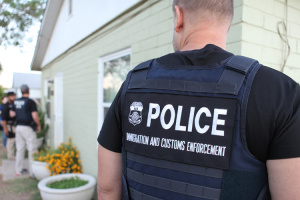A Week in China - Insight Into WEA's Meetings With China's Officials
World Evangelical Alliance's (WEA) Secretary General Dr. Geoff Tunnicliffe, and WEA Global Ambassador, Brian Stiller, met with China's director of the State Administration for Religious Affairs (SARA) in May to discuss the place of the Chinese Evangelical Church within the global Christian community.
This is an account of those meetings from Brian Stiller:
Hosted by General Minister Wang, Director General of the State Administration for Religious Affairs (SARA) in Beijing, we met for two hours about Evangelicals, about what we (Evangelicals) believe, and why Evangelicals are experiencing rapid growth in China and worldwide.
For most of a week we met senior leaders of the China Christian Council (CCC) and The Three Self Patriotic Movement (TSPM). Topics of conversation were wide-ranging including, challenges of rapid church growth, Bible engagement, business ethics, religious liberty, Gendercide and human trafficking.
Last year General Minister Wang and leaders of the CCC hosted by the Billy Graham Association met in the United States, focusing on Evangelical faith. Our meetings in May continued that conversation.

First a quick lesson on Chinese Church arrangement. The CCC is the government's liaison with Protestant Christians: the registered church. Created in the early 1980s (following the Red Guard purge) it kept track of Christians: who they were and what they were doing. The TSPM began in 1954 – built around three ideas – self-governance, self-support, and self-propagation. This was China's reaction to earlier work of foreign missions, building on what they often refer to as "post denominationalism," seeking to be indigenous, without reliance on groups outside China.
The unregistered Church, however, concerns both the government and the registered Church leaders. Many in the unregistered Church have not registered due to fears of living in the shadow of government oversight. For entrepreneurial leadership, bureaucratic oversight is claustrophobic. On this topic of registering churches and groups, the General Minister reminded us that problems created by heretical groups is evidence why registration is important.
The actual numbers of Christians in China is up for grabs. The country's official census figures indicate that there are there are 24 million. The Pew Foundation pushes that number up to 67 million with some speculating higher numbers.
Understand – and this is not an excuse – China is a huge country of over 1.3 billion. While the central government makes laws and sets policies, it doesn't necessarily mean they will be enacted far from the oversight of Beijing. Regional, municipal and city/town/village political leaders and police exercise judgment on matters often outside of the official line. This is a country undergoing tremendous change. As noted, "Anything you say is going on may in some place at some time be going on in China."
Undoubtedly WEA will be taken to task for meeting with the national government. The argument goes thus: WEA should not be seen meeting with the official government representative, because of occasions of repression of the Church. The argument continues, with reports of Christians being imprisoned for their faith, WEA should be protesting not conversing. I respect that opinion.
However, WEA as the international body representing Evangelical Protestants, it is our task to meet officially with the most senior levels of government, ensure the channels of communication are open to facilitate the building of mutual trust and mutual understanding. We continually are called on to explain reports on Evangelicals – some, the wackiest expressions of faith. It is our call to represent the broad stream of Evangelical Protestants and to help – in this case – the Chinese government to know that Evangelicals are committed to being good citizens by serving their respective countries and communities, as taught by the Bible.
While as president of Tyndale University College & Seminary, Chinese pastors said that as President it was my responsibility to build strong credentials with the officially recognized church, which in turn gave them freedom to work with all Christians in China.
Among the many recent and radical changes in China since the Red Guard lost its upper hand, this year the country will print its 100 millionth Bible. No doubt there is continuing nervousness over new religious groups - groups they don't know or understand.
The state of religious liberty in China is a hot topic, driven by a broad spectrum of views, concerns and stories from both sides. I write these comments as a learner of China. My trips – journeying alongside Chinese churches and leaders – is an apprentice's guide to this rich, yet complex culture, country, political system and way of thinking.
Here is what I'm assured of: China is emerging as a global super power. As I travel about the world, I see signs of China's economic might everywhere I go. As a Canadian, living alongside the United States, to not have official connections with the U.S.'s most senior leaders would be folly. So too with China. Not knowing its leaders would be irresponsible for us in the WEA. Becoming friends with her many Christians needs no justification.
Then I'm assured the Spirit will continue to pulsate across this people, culture and land. Yes, there are varieties of groups and different manifestations of spiritual life, yet within the diversity – and sometimes inter Christian conflict – the church is growing, overcoming obstacles and finding her expression in the indigenous roots of its history, language, culture and traditions. It will look different; they train pastors differently, and their nervousness is triggered by memories of colonial exploits of the past, and this presses them to define Church differently.
I also believe in the good intentions of those outside of China, passionate about Christ's witness in China, yet who occasionally speak harshly of those proactive in building relationships and establishing levels of understanding.
There are aspects of the Chinese culture that baffle me. "Saving face" is so ingrained. But I am learning to speak truth in ways that help us face up to seemingly unsolvable problems. Grace is a quality that seeks to understand, offering ways in which mercy and faith can in turn give life and hope.
The day is coming when the Chinese community, will exercise worldwide witness of the Gospel, opening doors of service to countries in need of Christian care and leadership, way beyond the economic muscle they now employ. Out of their unique culture and life, made powerful by the presence of the risen Lord, their passion for Christ will be an example to us all.





























